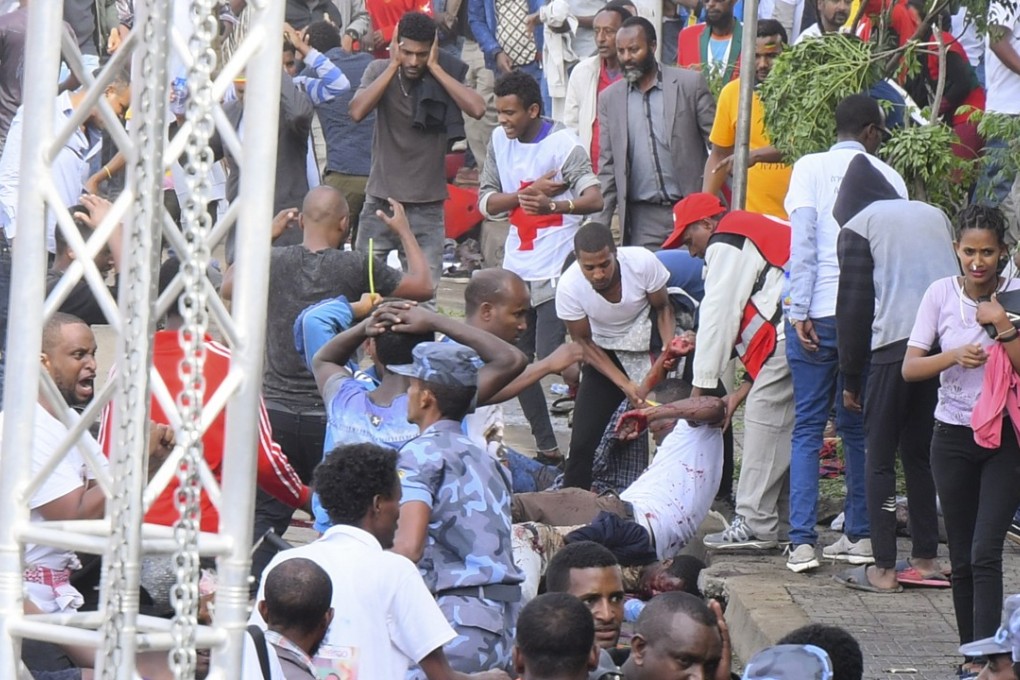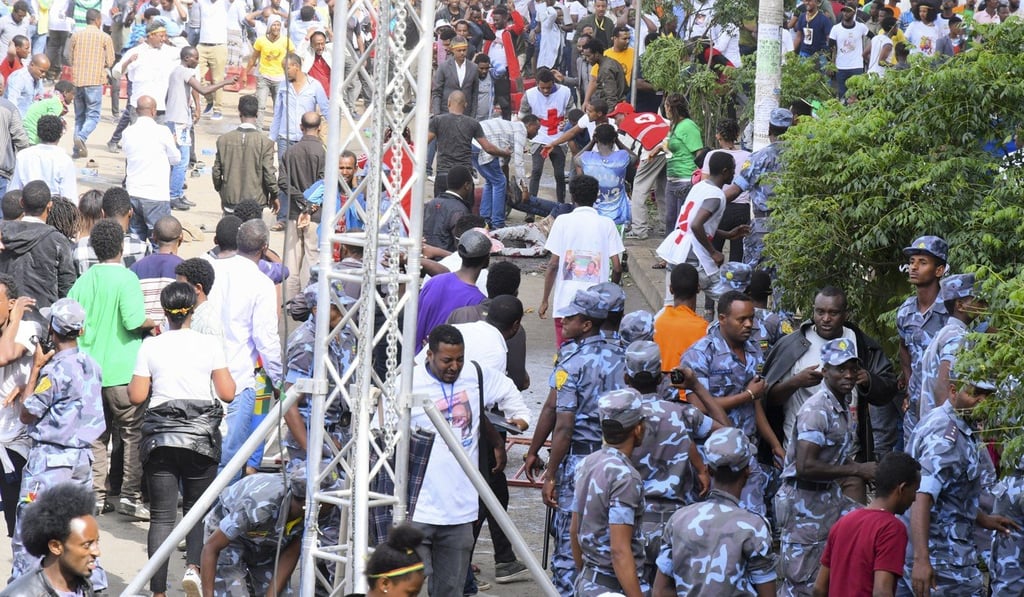Deadly blast at Ethiopian rally was a ‘well-orchestrated attack’
The explosion in packed Meskel Square in the capital, Addis Ababa, came after weeks of sweeping reforms that had shocked many

A deadly explosion struck a huge rally for Ethiopia’s reformist new prime minister on Saturday shortly after he spoke and was waving to the cheering crowd that turned out in numbers unseen in recent years in the East African nation.
Addressing the country minutes after he was rushed to safety, Prime Minister Abiy Ahmed said “a few people” had been killed. Police said more than 100 were injured. Abiy called the blast a “well-orchestrated attack” but one that failed. He did not lay blame but said police were investigating.
“The prime minster was the target,” said Seyoum Teshome, a rally organiser. “An individual tried to hurl the grenade toward a stage where the prime minister was sitting but was held back by the crowd.”

The man with the grenade was wearing a police uniform, said Abraham Tilahun, a witness. Police officers nearby quickly restrained him, he said.
“Then we heard the explosion,” he said. “I’m sure those who died there were also policemen who tried to prevent the attacker.”